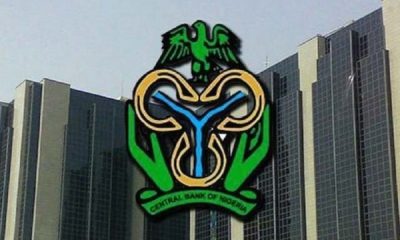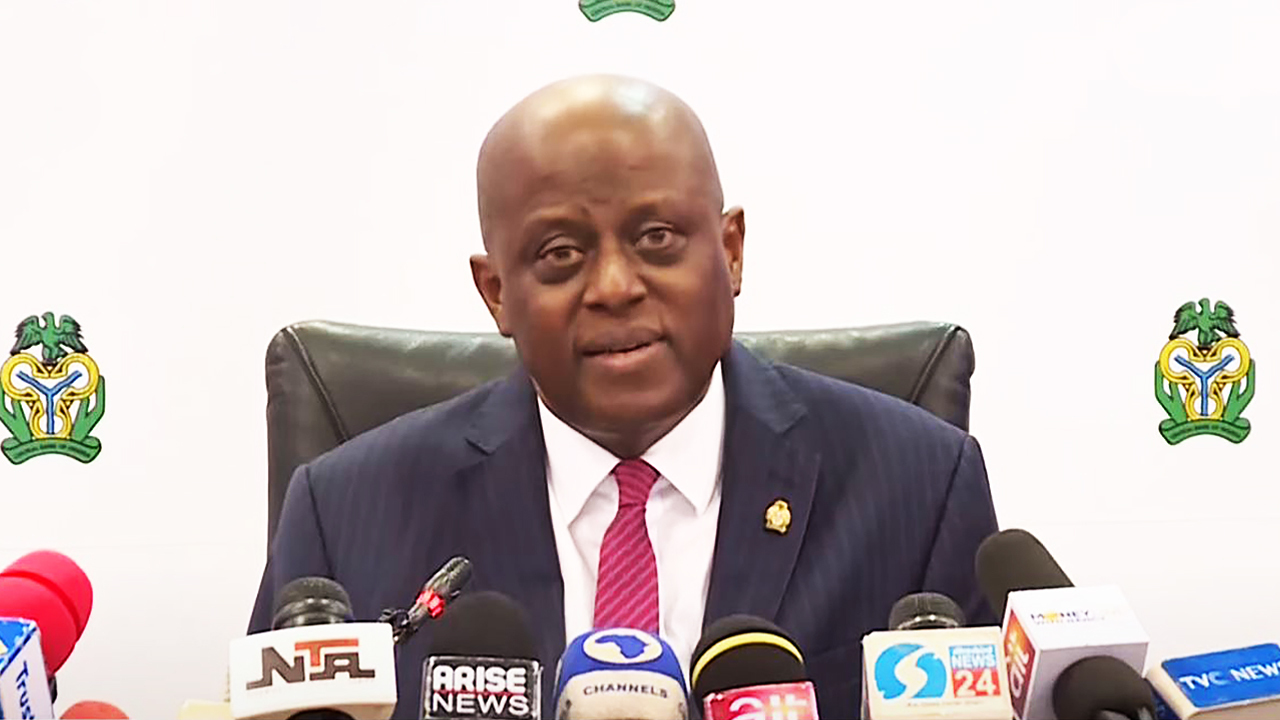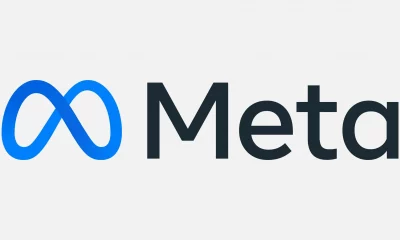General
Missing N4.4bn: SERAP Drags National Assembly to Court

By Adedapo Adesanya
In a fresh round of action, the Socio-Economic Rights and Accountability Project (SERAP) has filed a lawsuit against the Senate President, Mr Ahmad Lawan, and Speaker of House of Representatives, Mr Femi Gbajabiamila over their failure to probe an alleged misappropriated N4.4 billion public money budgeted for the National Assembly.
The suit followed the publication of annual audited reports for 2015, 2017, and 2018 in which the Auditor-General of the Federation raised “concerns about alleged diversion and misappropriation of public funds, sought the recovery of any missing funds, and asked that the evidence of recovery should be forwarded to his office.”
In suit number FHC/ABJ/CS/366/2021 filed last Friday at the Federal High Court in Abuja, SERAP is seeking: “an order of mandamus directing and compelling Dr Lawan, Mr Gbajabiamila and the National Assembly to perform their constitutional oversight functions to ensure the prompt and transparent investigation into the allegations that N4.4 billion budgeted for the National Assembly may be missing and unaccounted for.”
In the suit, the association argued that “by the combined reading of the provisions of the Nigerian Constitution of 1999 [as amended], the International Covenant on Economic, Social and Cultural Rights, and the UN Convention against Corruption, which Nigeria has ratified, the National Assembly has legal duties to combat corruption, and promote transparency and accountability in the management of public resources.”
According to SERAP: “transparency and accountability in the management of public resources and wealth is essential for promoting development, people’s welfare and well-being, and their access to basic public services, as well as good governance and the rule of law.”
SERAP is also arguing that “The National Assembly has the legal responsibility to ensure that the serious allegations of corruption and mismanagement documented by the Office of the Auditor-General of the Federation are promptly, independently, thoroughly, and transparently investigated, and to end the culture of impunity that is fuelling these allegations.”
According to SERAP: “The failure of the National Assembly to promptly and thoroughly investigate, and to refer to appropriate anti-corruption agencies the allegations documented in the annual audited reports for 2015, 2017 and 2018 is a fundamental breach of the oversight and public interest duties imposed on the legislative body by sections 4, 88 and 89 of the Nigerian Constitution.”
The suit filed on behalf of SERAP by its lawyers Mr Kolawole Oluwadare and Ms Adelanke Aremo, read in part: “Granting this application would serve the interest of justice, reduce corruption and mismanagement, as well as end impunity of perpetrators, and advance the fundamental human rights of Nigerians.
“This suit seeks to vindicate the rule of law, the public interest, and to promote transparency and accountability. Government agencies and institutions are responsible to a court of justice for the lawfulness of what they do, and of that the court is the only judge. The National Assembly has no legally justifiable reason to refuse to investigate the allegations documented by the Office of the Auditor-General of the Federation.
“Obedience to the rule of law by all citizens but more particularly those who publicly took an oath of office to protect and preserve the Constitution is a desideratum to good governance and respect for the rule of law. In a democratic society, this is meant to be a norm.
It would be recalled that SERAP had in a letter dated 30 January 2021 requested Dr Lawan and Mr Gbajabiamila to “use their good offices to urgently probe and refer to appropriate anti-corruption agencies allegations that N4.4 billion of public money budgeted for the National Assembly may have been misappropriated, diverted or stolen.
The letter, read in part: “The Auditor-General noted in his 2015 report that the National Assembly account was spent N8,800,000.00 as an unauthorised overdraft, contrary to Financial Regulations 710. The National Assembly also reportedly spent N115,947,016.00 without any documents. Another N158,193,066.00 spent as cash advances to 17 staff between January and June 2015 is yet to be retired.”
“The Senate reportedly spent N186,866,183.42 to organise Senate Retreat and Pre-Valedictory Session for the 7th Senate, although the money was meant to pay vehicle loan. The Senate also reportedly spent N15,964,193.63 as bank charges between July and December 2015, contrary to Financial Regulations 734.
“The House of Representatives also reportedly spent N624,377,503.30 to buy 48 Utility Vehicles. However, 14 vehicles were not supplied. The House also failed to make the 34 vehicles supplied available for verification. Similarly, the House spent N499,666,666.00 as cash advances to staff to carry out various assignments but has failed to retire the money.
“The House of Representatives also reportedly paid N70,560,000.00 as overtime and ‘special’ allowances to officials who are not legislative aides between November and December 2015 without any authority.
“The National Assembly Service Commission reportedly failed to remit N30,130,794.10 deducted from the salaries of the Executive Chairman and the Commissioners as car loan.
“The National Assembly Budget and Research Office reportedly spent N66,303,411.70 as out-of-pocket expenses without any documents. The National Institute for Legislative and Democratic Studies paid N246,256,060.51 by cheques, despite the prohibition of payments by cheque by the Federal Government, except in extreme cases, and contrary to Financial Regulation 631.
“According to the Auditor-General Report for 2017, the House of Representatives reportedly spent N95,212,250.00 without due process and without any documents. The National Assembly Management Account also reveals that N673,081,242.14 was spent between April and October 2017 without any documents. The Auditor-General reported that the funds may have been misappropriated.
“The Senate Account also reportedly shows that N1,364,816,397.95 was spent on store items without any documents to show for the spending. The Auditor-General stated that his office was denied access to the store and to the Senate’s records.
“The National Institute for Legislative and Democratic Studies also reportedly failed to remit N2,181,696.50 from a contract of goods and services. The Institute also paid N67,296,478.00 without any payment vouchers.”
Business Post understands that no date has been fixed for the hearing of the suit.
General
Deep Blue Project: Mobereola Seeks Air Force Support

By Adedapo Adesanya
The Director General of the Nigerian Maritime Administration and Safety Agency (NIMASA), Mr Dayo Mobereola, is seeking enhanced cooperation between the agency and the Nigerian Air Force (NAF) with the aim of strengthening tactical air support within the Deep Blue project.
During a courtesy visit last week, Mr Mobereola told the Chief of Air Staff, Air Marshall S. K. Aneke at the NAF Headquarters in Abuja, that the Air Force was a strategic partner in enhancing maritime security in Nigeria and sustaining the momentum of the Deep Blue Project’s success.
According to the DG, “We are here to seek the Air Force’s support, given the importance of tactical air surveillance to the Deep Blue Project. Nigeria is the only African country with a record of zero piracy within the last 4 years. The Deep Blue Project platforms have been used to achieve zero piracy and sea robberies in the Gulf of Guinea, and we need your collaboration to sustain this momentum”.
He further emphasised that international trade depends on security, which is why vessels prefer to go to or transit through countries where they are secured. “With the traffic we have now, we need to show more security might through collaboration to strengthen our trade viability because of the risks attached to our route. We need these collaborations to sustain what we have achieved so far with the Deep Blue Project”.
The NIMASA DG expressed hope that the collaboration with the Nigeria Air Force will reduce response time.
On his part, the Chief of Air Staff, Air Marshall S.K. Aneke, noted that the Air Force desires to be “a very supportive and collaborative partner with NIMASA and is ready to match the Agency step by step and side by side to achieve the desired results.”
He noted that “collaboration between NIMASA and the Nigerian Air Force under the Deep Blue Project can be strengthened through a joint strategic framework, integrated command structures, and a standing steering committee to ensure shared objectives and accountability.
“Establishing a joint maritime domain awareness fusion cell will enable real-time intelligence sharing, synchronised surveillance, and faster response to maritime threats and ensure sustained operational effectiveness across Nigeria’s territorial waters and exclusive economic zone,” he said, according to a statement.
The Air Force Chief added that the Air Force can also support NIMASA outside the Deep Blue Project operations by providing its own ISR platforms, tactical air support, and rapid airborne deployment for interdictions and search and rescue missions.
While thanking the NIMASA DG for the basic trainings the Agency has provided the aircraft pilots under the Deep Blue Project, Air Marshall Aneke also highlighted areas of operational challenges needing NIMASA’s attention to include bridging the communication gap between NAF operators and NIMASA, higher level and in-depth maintenance trainings, readily available fueling of aircrafts to avoid delays on missions, and provision of flying kits among others.
He therefore pledged the Air Force’s collaboration and assured that the request by NIMASA has been noted and that things will begin to move at thrice its speed going forward.
General
Nigeria’s Democracy Suffocating Under Tinubu—Atiku

By Modupe Gbadeyanka
Former Vice President, Mr Atiku Abubakar, has lambasted the administration of President Bola Tinubu for the turnout at the FCT Area Council elections held last Saturday.
In a statement signed by his Media Office, the Adamawa-born politician claimed that the health of Nigeria’s democracy under the current administration was under threat.
According to him, “When citizens lose faith that their votes matter, democracy begins to die. What we are witnessing is not mere voter apathy. It is a direct consequence of an administration that governs with a chokehold on pluralism. Democracy in Nigeria is being suffocated slowly, steadily, and dangerously.”
He warned that the steady erosion of participatory governance, if left unchecked, could inflict irreversible damage on the democratic fabric painstakingly built over decades.
“A democracy without vibrant opposition, without free political competition, and without public confidence is democracy in name only. If this chokehold is not released, history will record this era as the period when our hard-won freedoms were traded for fear and conformity,” he stressed.
Mr Atiku said the turnout for the poll was below 20 per cent, with the Abuja Municipal Area Council (AMAC) recording 7.8 per cent.
He noted that such civic participation in the nation’s capital, the symbolic heartbeat of the federation, is not accidental, as it is the predictable outcome of a political environment poisoned by intolerance, intimidation, and the systematic weakening of opposition voices.
The presidential candidate of the People’s Democratic Party (PDP) in the 2023 general elections stated that the ruling All Progressives Congress (APC) under Mr Tinubu has pursued a deliberate policy of shrinking democratic space, harassing dissenters, coercing defectors, and fostering a climate where alternative political viewpoints are treated as threats rather than contributions to national development.
He called on opposition parties and democratic forces across the country to urgently close ranks and forge a united front, declaring, “This is no longer about party lines; it is about preserving the Republic. The time to stand together to rescue and rebuild Nigeria is now.”
General
Nigeria Eyes Full Entry into Council of Palm Oil Producing Countries

By Adedapo Adesanya
Nigeria is set to validate a technical committee report geared towards transitioning the country from observer status to full membership of the Council of Palm Oil Producing Countries (CPOPC) in April.
Mr Abubakar Kyari, Minister of Agriculture and Food Security, said this when the council’s mission visited him over the weekend in Abuja, noting that the ministry had constituted a technical committee to consider how the country would seamlessly transit from observer country to membership in CPOPC based on its strategic importance in palm oil production.
“We are conscious of the fact that the palm oil value chain is very strategic for us and identified it as an export crop that can drive foreign exchange for the country and ensure good health in terms of consumption.
“We are conscious of the fact that we need the support of CPOPC countries to provide the country with a new variety of seeds that are climate-smart and resistant so that they can be produced by farmers in the country,” he said.
Mr Alphonsus Inyang, President, National Palm Produce Association of Nigeria (NPPAN), said being a member of CPOPC Nigeria would target over 10 million tonnes of oil palm between 2026 and 2050.
“We are also targeting 2.5 million hectares from among Nigeria households who are out to produce one hectare each, geared towards a N20 trillion annual economy within this period from among Nigeria households.
“We are working side by side with the big players who will be developing plantations,” he said.
The Secretary-General of CPOPC, Ms Izzana Salleh, said the council’s mission to Nigeria was to see how the country could transit from observer status to full membership, among others
She said that the status of the country as an observer nation since 2024 would expire by November.
Ms Salleh assured the country of the council’s readiness to support its vision to strengthen domestic production, enhance food security and build a competitive and sustainable palm oil supply chain.
The official emphasised that being a member of the council would strategically position Nigeria for a greater future regarding oil palm production.
According to her, the visit is to strengthen the council’s engagement with Nigeria, including potential membership in CPOPC.
She said: “The council’s mission to Nigeria aims to advance both Nigeria’s national ambitions and Africa’s collective voice in global agricultural discussions.
“CPOPC was established to promote cooperation among producing nations, empower smallholders, advance sustainability, and ensure fair, science-based global dialogue on vegetable oils.
She emphasised that being a member of the council would strategically position the country for greater future prospects regarding oil palm production and the value chain, as well as export.
“We are ready to support Nigeria’s vision to strengthen domestic production, enhance food security, and build a competitive and sustainable palm oil supply chain,” she said.
-

 Feature/OPED6 years ago
Feature/OPED6 years agoDavos was Different this year
-
Travel/Tourism10 years ago
Lagos Seals Western Lodge Hotel In Ikorodu
-

 Showbiz3 years ago
Showbiz3 years agoEstranged Lover Releases Videos of Empress Njamah Bathing
-

 Banking8 years ago
Banking8 years agoSort Codes of GTBank Branches in Nigeria
-

 Economy3 years ago
Economy3 years agoSubsidy Removal: CNG at N130 Per Litre Cheaper Than Petrol—IPMAN
-

 Banking3 years ago
Banking3 years agoSort Codes of UBA Branches in Nigeria
-

 Banking3 years ago
Banking3 years agoFirst Bank Announces Planned Downtime
-

 Sports3 years ago
Sports3 years agoHighest Paid Nigerian Footballer – How Much Do Nigerian Footballers Earn




















